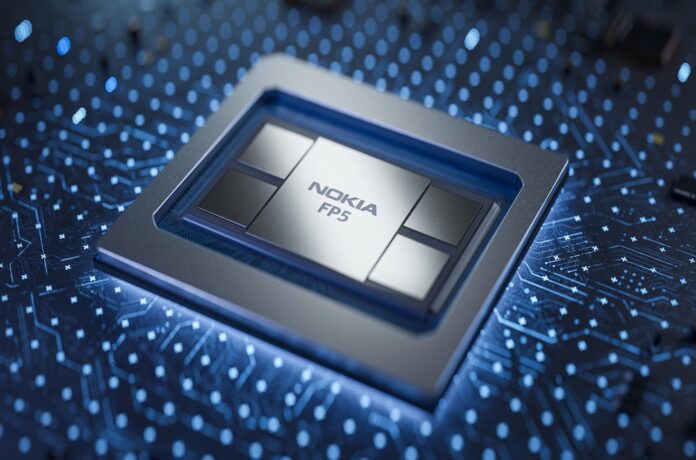Programmable routing silicon can match the shape of things to come
Nokia has unveiled the latest generation of its network processing silicon, the FP5, to meet surging demands on network capacity, speed and security.
The last 20 months have proved that mobile operators need to get ready for the unexpected, said Heidi Adams, head of IP/optical product marketing at Nokia. The FP5 will give them the programming options to meet any eventuality, Nokia claims.
The new programmable routing silicon will provide support for 800GE routing interfaces for flexibility, integrated line rate encryption for security and backwards compatibility for continuity. It will use 75 per cent less power too, with a crowd pleasing fall in the rate of consumption per bit.
Be accessible without being hackable
Nokia says the new FP5-based line cards will support 14.4 Tb/s capability. A new series of fixed-form factor 7750 Service Router-1 platforms will make its features available in smaller network locations.
The integrated line rate encryption is for L2, L2.5 and L3 network services at speeds up to 1.6 Tbps. This is breakthrough technology in security, Nokia says. Its “Anysec” capacity allows it to create secure IP services, including MPLS and segment routing, “on-demand and at scale without impacting performance or power efficiency,” Nokia claims.
For the sake of continuity and economy, the FP5 works with the previous model, the FP4, and is fully integrated with the latest Nokia Service Router operating system.
After the Covid-19 pandemic drove a “fundamental shift” to home-based and remote work, schools and health services, operators like Swisscom saw bandwidth demand triple. As bandwidth consumption rose, the criminal opportunists were awakened and threats on the network multiplied ten-fold.
Expect the unexpected
Dedicated denial of service (DDoS) attacks grew faster than video said Adams. Service providers have to combat malicious traffic without killing the “good traffic” and Nokia is preparing a weapon for this fight with its programmable silicon.
Hiroyuki Oto, general manager of NTT DoCoMo’s core network development department, said the flexibility is the key component.
“Our network needs to continue to evolve to meet the demands from our consumers, communities and businesses,” said Oto, “Nokia’s silicon innovation and careful attention to investment protection is the right foundation to stay ahead of shifting market demands.”
Uncertainty led to massive spikes in network usage and it’s near impossible to predict where things will be in even three years, says Nokia. “That’s the element of the unexpected that Nokia hopes to help its customers address through silicon programmability,” said Nokia’s Adams.



